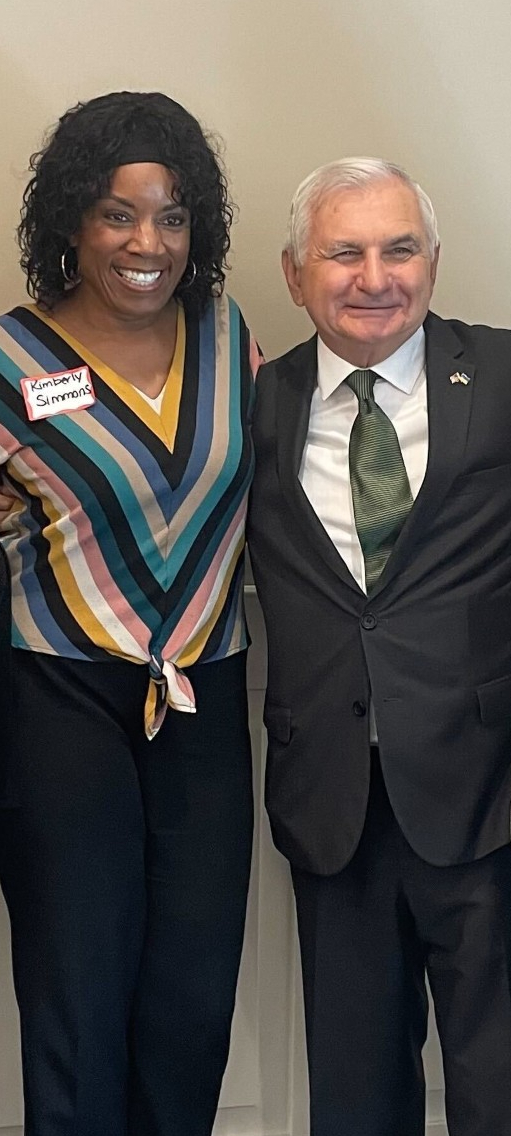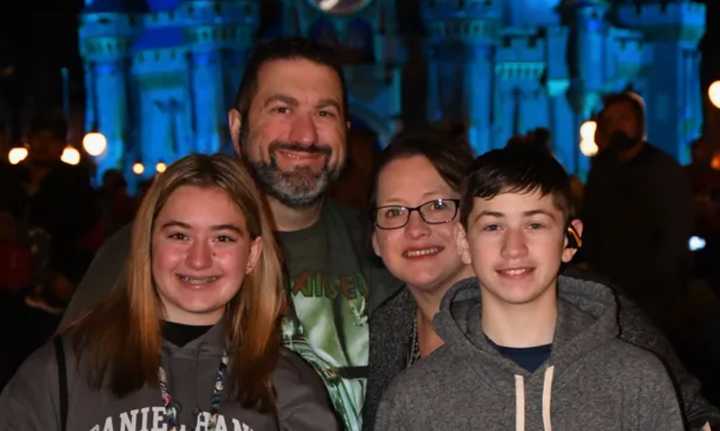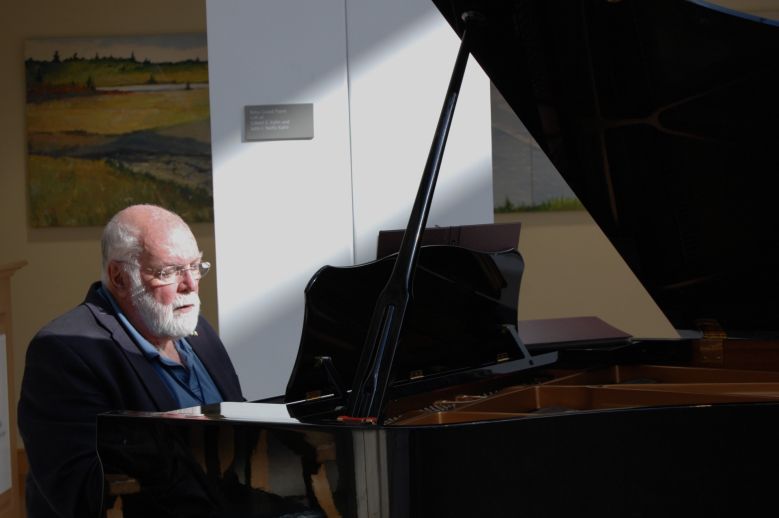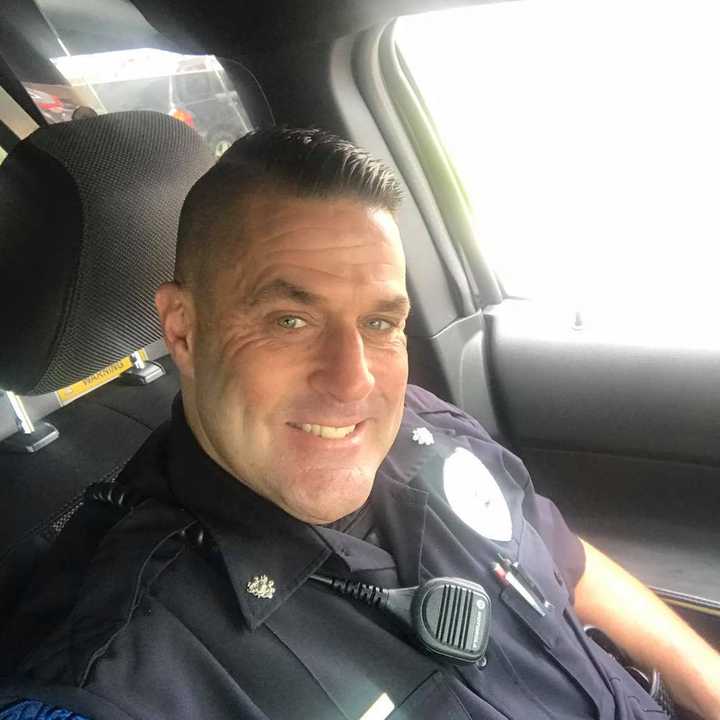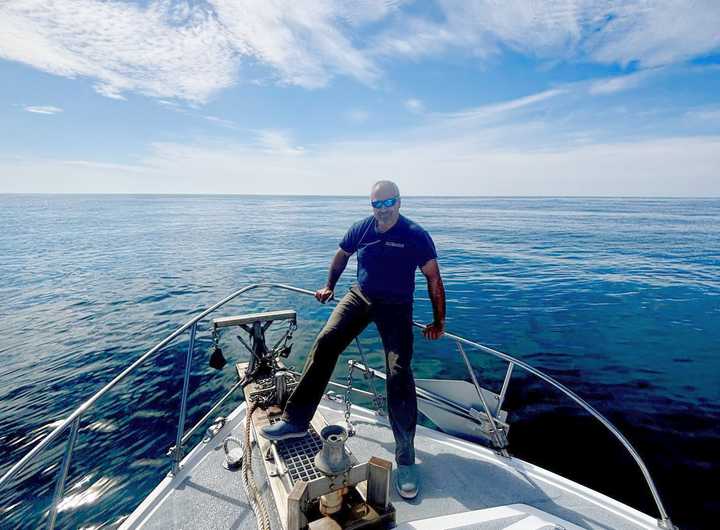It was just before boarding a plane to visit my grandchildren in Kentucky when my phone rang. A young woman found my name through a Google search and hoped I could help her. Her 79-year-old grandmother had recently become homeless.
“She’s been sleeping outside for two nights. I can’t have her live here. I’m a single mom with two small children, and if she stays at my apartment, I risk getting kicked out.”
Then came that question that is so difficult for many to ask: “
Can you help me
?”
I told her I wasn’t sure–I don’t usually work in this space–I promised to make some calls. Those calls led me to Kimberly “Kim” Simmons, Executive Director of the
Rhode Island Coalition to End Homelessness.
For nearly 30 years, Kim Simmons has devoted her life to serving vulnerable, underserved, and marginalized communities–including African American, Latino, Black, LGBTQ+ families, children, and older adults. She has worked with survivors of domestic violence and led initiatives through the Urban League focused on racial and social justice.
Today, as Executive Director of the Rhode Island Coalition to End Homelessness, Kim is both a leader and a rallying cry–amplifying voices too often overlooked and fighting to ensure that no one in
our collective community
is left behind.
“What’s really driving my interest home is that much of the landscape is changing–politically, socially and personally,” Kim said. “I just turned 65, and my mom is 88 and living in assisted living. I see firsthand how limited resources have become. There’s a lack of affordable housing, more chronic health challenges, and so many older adults carry a history of trauma. We’re seeing more people become homeless for the first time after age 50. It’s a crisis beyond belief.”
Kim also knows what it’s like to fall through the cracks.
“I had a brief bout of homelessness myself,” she shared. “I was in a relationship that left me vulnerable, I ended up on the street with a five-year-old and nine months pregnant. I got into housing, and 10 months later, I finished my masters degree–getting into housing was a significant springboard.” Her words speak to the power of stable housing.
Across the country, nearly half of all homeless single adults are over the age of 50–a dramatic shift from just 10% in the early 1990s, according to a 2024
Governing
magazine article titled “The Nation’s Homeless Population is Aging Dramatically.”
And Rhode Island is not immune from this dramatic shift.
On a single winter night in January 2024, nearly one in five Rhode Islanders experiencing homelessness were aged 55 or older, according to the Rhode Island Coalition to End Homelessness. That number comes from the Coalition’s
Point-in-Time Count
, a federally mandated census that takes place on a single night each January to capture a snapshot of homelessness across the state.
As Kim explained, “It’s a pulse check on homelessness, but it’s just one night. It doesn’t always capture the people who are couch-surfing or on the brink. And what we’re seeing, especially with older adults, is that this is a part of aging that we aren’t fully prepared for.”
Homelessness isn’t always a sudden collapse. For many older adults, it creeps up slowly. It happens to people who worked their whole lives, had solid careers, raised families, have grandchildren, and lived independently. But life events like illness, job loss, rent increases, or death of a spouse is something that could happen to any of us–and often, people don’t realize that just one crisis could push them into homelessness. And not everyone has the financial cushion to recover. In Rhode Island, more than 30% of older adults rely on Social Security as their only source of income, making them especially vulnerable when housing or healthcare costs rise.
To be homeless is to be a label without a face.
It’s easy to look away when you don’t see or feel for the person behind the circumstance. But the truth is, many older adults experiencing homelessness are not causing disruption. In fact, many are doing everything they can not to be noticed. As Kim shared, “People who are homeless are often very good at hiding. They stay quiet, they stay out of trouble. That’s part of why they’re so often overlooked.”
Behind the label are people. Older adults are quietly struggling, alone, and in ways most of us never see. There are those who go to the emergency room just to escape the cold, only to be discharged back to the street–with no plan, no help and nowhere to go. There are people in their 60s and 70s, evicted and now sleeping in their cars.
One man,70 years old and undergoing chemotherapy, was living on the streets while trying to survive treatment. Another, a 79-year-old grandmother, who worked most of her life, became homeless after she could no longer afford her rent. Her granddaughter, raising two children alone, called in tears because letting her stay meant risking and eviction herself.
Compassion– and the success stories that grow from it–are what fuel Kim Simmons.
And for the 70-year-old undergoing chemotherapy, his name is Donn King. After connecting with the Coalition, he not only found housing but also received advocacy training and a renewed sense of purpose. Today, he shares his story on behalf of the National Alliance to End Homelessness, helping others understand what it means to age without a safety net and showing us that it’s never too late to live fully.
As Kim reflected, “There’s a need to be more understanding that the longer we live, the more challenging life becomes. We are built for connection–and yet we often treat others as if they’re invisible. But the truth is, we are all connected. We are all walks of life.”
“The public deserves to know the reality–and to find true empathy for it,” she added. “Education is key.”
Simmons encourages people to question the stereotypes that surface when they see someone asking for help at a red light or resting on a park bench. “Not all homelessness looks the same,” she noted. “Many older adults experiencing homelessness are doing everything they can not to be seen.”
She also shared her hope: “I want the Rhode Island Coalition to End Homelessness to become a household name in this state.” Not simply because of the crisis it addresses, but because of the people it helps bring back into view. She urges Rhode Islanders to get informed, attend rallies, and use their voices to advocate for change. Even small actions can make a meaningful impact–supporting local organizations, checking in on neighbors and refusing to look away.
Because sometimes, a small gesture like a kind word, a simple hello, or truly seeing someone can remind a person that they still matter.
As Kim Simmons put it, “There’s so much goodness in humanity. I see it every day.” If more of us take the time to truly see one another, we can begin to change what it means to grow older in this world. One act of kindness and one act of seeing at a time.
If you or someone you know is without housing or at risk of losing it, call the
Rhode Island Coalition to End Homelessness
at 401-277-4136. Help is available.
Helen Hames is a Certified Senior Advisor and the Founder of Age Ambassador. She helps older adults and families across Rhode Island navigate the complex decisions that come with aging–whether that means staying safely at home or transitioning to senior living. With deep expertise and a personal approach, she believes that each person’s values and priorities should shape the path ahead. Helen connects people to trusted resources that support aging well at any stage–helping them take meaningful steps to what matters most. Learn more at
AgeAmbassador.com
.
More from What’sUpNewp
Over 1,300 runners celebrate craft beer and fitness at ninth annual Newport Beer Run
Regional economy stagnant, but some optimism for the future
Letter to the Editor: Birthing Center closure could trigger community decline
Morning Notes: 281 swimmers tackle two-mile Save The Bay Swim
Something went wrong. Please refresh the page and/or try again.
